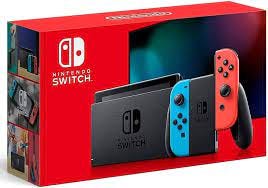THE BIG PICTURE
Nintendo files a pair of lawsuits to stop Switch console mod sales.
THE SETUP
Team-Xecuter is an anonymous group of hackers who began making hardware and software hacks for the Xbox in 2002. In May 2018, Team-Xecuter expanded to the Nintendo Switch. Team-Xecuter sells “modchips” that are installed on Switch devices. The modchips allow users to install custom software designed by Team-Xecuter (the “SX OS”) which in turn allows users to run ROMs (copies of data from read only memory, like video games). The Team-Xecuter modchip is shown below.
According to Nintendo, in June 2018, it implemented additional technological measures to defeat Team-Xecuter’s original modchip.
By May 6, 2020, however, Team-Executer had created and began to distribute new modchips that would allow SX OS to run on Switch consoles despite Nintendo’s additional technological measures. Team-Executor only sells its goods through authorized resellers and does not take orders directly.
On May 15, 2020, Nintendo filed a pair of lawsuits, the first in the Northern District of Ohio against the owner of an authorized reseller and the other in the Western District of Washington against the anonymous owners of eight reseller websites. Both complaints allege that the defendants traffic in devices that violate the Digital Millennium Copyright Act (“DMCA”).
APPLICATION OF THE DMCA
The DMCA prohibits trafficking in technology that:
(A) is primarily designed or produced for the purpose of circumventing protection afforded by a technological measure that effectively protects a right of a copyright owner under this title in a work or a portion thereof;
(B) has only limited commercially significant purpose or use other than to circumvent protection afforded by a technological measure that effectively protects a right of a copyright owner under this title in a work or a portion thereof; or
(C) is marketed by that person or another acting in concert with that person with that person’s knowledge for use in circumventing protection afforded by a technological measure that effectively protects a right of a copyright owner under this title in a work or a portion thereof.
The DMCA provides for both criminal and civil liability for violations. In 2014, the Sixth Circuit upheld the criminal conviction and 1-year sentence given to Jeffrey Reichert for modifying and selling a Nintendo Wii console (U.S. v. Reichert, 747 F.3d 445 (6th Cir. 2014)). Though the defendants are not accused of modifying the Switch consoles themselves, the alleged facts are otherwise similar to those of Mr. Reichert’s case and it’s hard to see how defendants would not be violating the DMCA here.
ANONYMOUS DEFENDANTS
I would assume Nintendo conducted a fairly extensive pre-filing investigation to attempt to discover the identities of the anonymous website owners. However, there are many ways to obscure ownership and it can be incredibly difficult to determine a website’s true owner. For example, FLASHCARDA.COM, one of the websites in Nintendo’s complaint, uses the popular registrar Namecheap. Namecheap “does not voluntarily divulge domain registrants’ private details … without a court-ordered subpoena.” After filing suit, Nintendo can request a court order requiring Namecheap to disclose FLASHCARDA.COM’s true owner information. Sometimes even that information is not enough. It could take quite some time before Nintendo can identify the individuals involved, and it would not surprise me if a few of them ended up being outside the jurisdiction of the U.S. courts.





